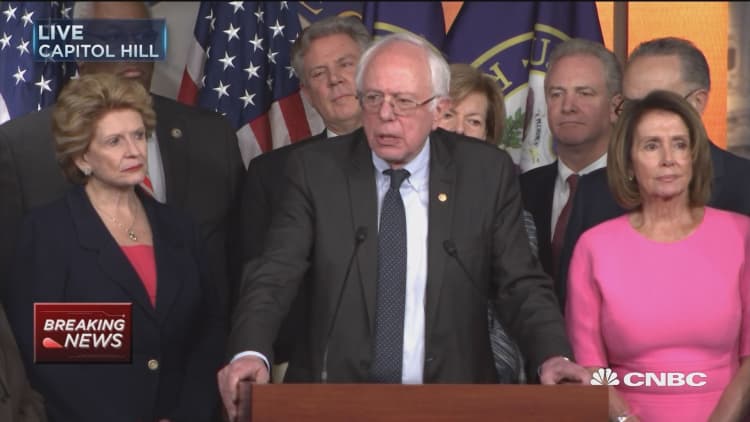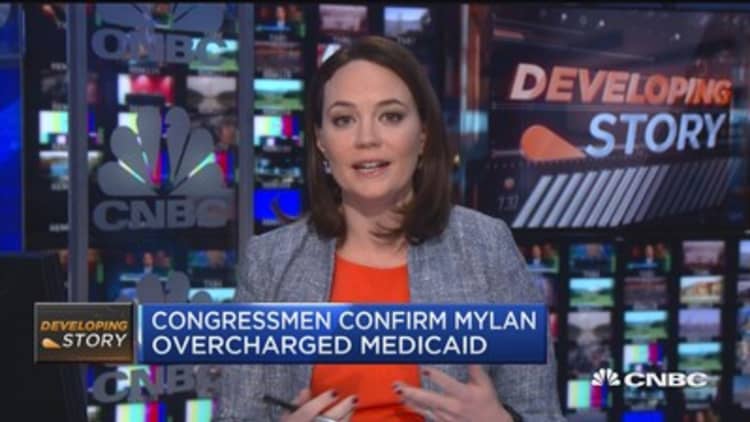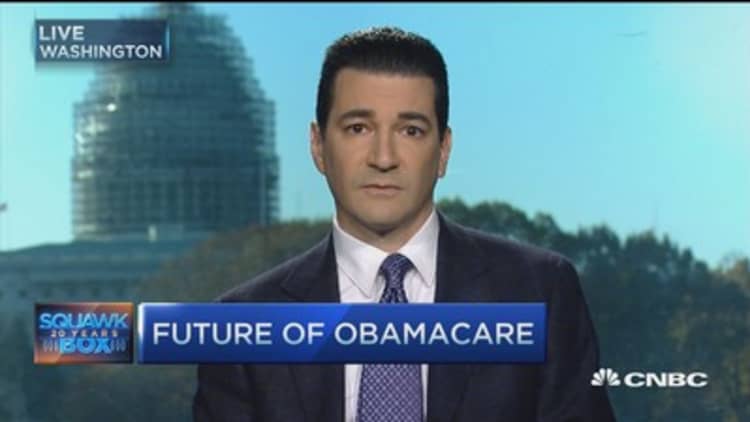
When crippling back pain forced Robin Henderson to leave her job last year, Medicaid was a godsend.
"If I didn't have the coverage, I would be in trouble. I would be in pain, without money, and health," said Henderson, who worked as a bus driver in Indianapolis before pain forced her to quit.
She gained coverage through the Healthy Indiana Plan — nicknamed HIP 2.0 — the state's version of Obamacare's Medicaid Expansion. Indiana got a waiver from the Obama administration to launch the program in 2015.
The key architect behind HIP was consultant Seema Verma, the president and founder of Indianapolis, Indiana-based health policy consulting firm SVC. She was hired by then-Governor Mike Pence, and after helping launch the Indian program would go on to help design Medicaid expansion plans in several states headed by Republican governors who had opposed the Affordable Care Act, including Ohio and Iowa.
Now, Verma has been nominated by President Donald Trump to head the Centers for Medicare and Medicaid, or CMS, where she will be deeply involved in implementing the Trump administration's plans to repeal and replace the ACA.
"I've never seen somebody in the job… come to this with really only Medicaid experience," said Joan Alker, the executive director of Georgetown University's Center for Children and Families and research professor at the McCourt School of Public Policy.
"I think that speaks to how important the Medicaid system has become in our health-care system," Alker said.
Back home in Indianapolis, Verma gets high marks for working across the aisle to help secure buy in to the plan from state legislators, the Obama administration, and local health-care leaders.
"You find her to be a collaborator," said Jonathan Nalli, senior vice president at Ascension Health, the state's largest health system. "She is somebody that every time you encounter her, it is 'what is our ability to solve the problem?' and 'how do we obtain that solution?'"

"She was a very good listener and was able to put a lot of different perspectives into the mix," said Dr. Sarah Stelzner, a pediatrician with Eskenazi Health, a community health clinic in Indianapolis.
But Verma has also come under fire from health policy analysts for devising policies requiring low-income HIP enrollees to contribute up to 2 percent of their income toward premiums, and a plan that denies them coverage if they fall behind on payments.
"If you don't pay your premium on time, or you don't get your paperwork in on time — even if you go back and say I'm going to pay my premiums — you're actually locked out of the program for 6-12 months," said Georgetown's Alker.
While much of the rhetoric over repealing Obamacare has centered on the individual health exchange market, Republicans in Congress are also looking to rein in federal spending on Medicaid — which is jointly funded by the federal government and the states.
Under the ACA, 90 percent of the tab for Medicaid expansion coverage for low-income enrollees is paid by federal funds. While Democrats have vowed to oppose the cuts, some Republican governors have also raised a red flag about plans in Washington, warning that reduced Medicaid funding will have a big impact on state health budgets.
Current Indiana Governor Eric Holcomb has asked the Trump administration to extend Obamacare funding for HIP 2.0 for another two years. Without it, the state stands to lose $8.6 billion.
"There are really two important questions for the Medicaid program going forward. There is this question of repeal and replace, which affects the new folks who are financed through Obamacare, but the fundamental program itself… services children, seniors in nursing homes and people with disabilities," explained Alker.
"If the federal government cuts [Medicaid] spending… those health costs aren't going away. That will simply be a huge cost shift to the states," she said.

Hospital and nursing home reimbursement could be hard hit by sharp cuts. In states that expanded Medicaid under Obamacare, researchers say hospitals have seen less uncompensated charitable care over the last few years as more people gained insurance coverage.
"The average hospital saw uncompensated care fall by 40-45 percent," said Tom Buchmueller, a health economist and professor of health policy at the University of Michigan Ross School of Business. "That's a sizable fraction of the care provided to low income people that they're now being compensated for."
In Verma's hometown, health-care executives are hoping she can help build compromise in Washington, to help limit the potential pain.
"There have been a lot of discussions about how bipartisan this needs to be. We are optimistic about what that means," said Ascension's Nalli.
After getting the care she needed to get back on her feet, Robin Henderson is hoping to get back to work soon, but worries about the fate of the Healthy Indiana Plan. She said enrollees like her can't afford to lose coverage now.
"It's important to have health insurance. It's hard not to have it," she said.



